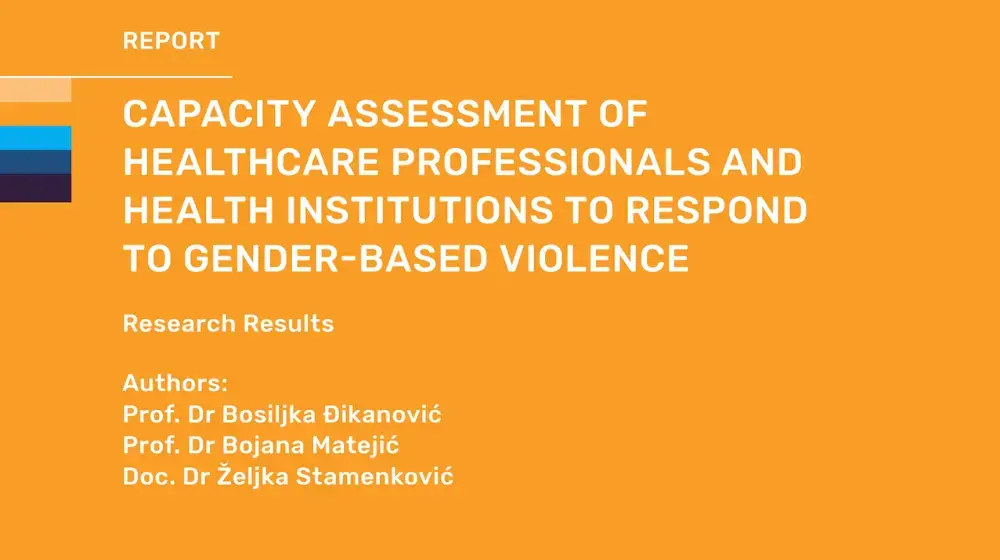Women across Europe and Central Asia are still widely expected to shoulder much of the unpaid work at home: cleaning, managing the household, caring for children, husbands and older relatives. This, to a large extent, explains the gender gap we see in the labour markets. Fewer women than men work in paid employment, and those who do are likely to earn less than men, advance slower, and hold more precarious jobs.
This is worrying for two main reasons. First, it drastically limits the opportunities and choices women have in society and holds back progress towards achieving gender equality. And second, it is bad for the economy, in effect preventing millions of women from contributing their skills and talents, or outright excluding them from the workforce.
There is another, perhaps less discussed, reason we should be concerned about the persistence of outdated norms around women’s roles at home and at work: they make it much harder for countries to manage the demographic changes they are facing. This is particularly true for Eastern and Southeastern Europe, where the share of women in the workforce is especially low, generally under 50 per cent, and the gap between the employment rates of men and women is wider than in Western Europe. In Albania, 32 per cent of young women aged 15 to 29 years are neither employed nor at school due to unpaid care work
responsibilities (compared to two per cent of young men).
At the same time, the countries of Eastern and Southeastern Europe are facing unprecedenteddemographic challenges, as large-scale outmigration and low birthrates have sent population numbers down, and the share of older people up, causing concern about economic growth prospects and the sustainability of social security systems and services.
In light of these pressures, it is clear that countries can ill afford to exclude a significant portion of their population from the economy and public life. For national strategies aimed at tackling demographic change to be successful, they must include policies that make it easier for women – and men – to reconcile their responsibilities at work and at home.
UNFPA, the United Nations Population Fund, is supporting governments and the private sector in adopting family policies that have this effect. Later this week, we are bringing together government and business leaders in Istanbul for a conference to discuss how we can get closer to the goal of creating work environments in which women and men get the support they need to realize their aspirations both in their careers and in the family.
Governments across the region are realizing that the traditional way of dealing with demographic change – essentially providing financial incentives for people to have more children – does not work, and that a more comprehensive approach is needed. Family policies that benefit women and men, and take into account that modern families come in different shapes and forms, are an essential part of this package. It is encouraging to see that governments in the region are experimenting with a wide array of measures, ranging from paid parental leave for both parents, to care allowances, and anti-discrimination legislation protecting pregnant women.
The private sector, too, is recognizing the return on investments when it comes to stronger work-life balance and improving working conditions for parents and care-givers. Businesses appreciate the reputational boost that comes with being seen as a leader in the field. And they benefit from greater staff morale and lower levels of absenteeism, turnover, and recruitment costs, all of which brings greater productivity and revenue.
There is a lot companies can do to create family-friendly workplaces. This includes flextime work arrangements, generous and well-paid parental leave, dedicated spaces for lactating mothers and care facilities for small children. Senior managers have an important role in being role models, for example by taking parental leave themselves and creating a supportive office culture.
Our data shows that social norms around women’s and men’s roles at home and in the workplace are shifting. In Moldova, for example, 59 per cent of men say they would like to spend more time with their children and would be willing to work fewer hours to make this happen if they were able to. The numbers are similar in other countries where we have data.
This tells us that more and more people wish to move away from the rigid gender roles of the past, towards a more flexible, and more equal, way of organizing family and work life. It is time to adjust legal frameworks, policies and services, as well as company cultures, to these new realities and tear down the barriers that prevent women and men to have the careers, and families, they want.
As countries in the region are struggling with the effects of demographic change, investing in policies for families has emerged as a key strategy to boost resilience and improve gender equality. If women, in particular, were not forced to choose between having a career and having a family, this would be a huge step towards empowering women in all spheres of life and enabling people to have the number of children they desire. This may well lead to an increase in fertility rates. But more importantly, it will allow women, and men, to realize their full potential, at work and at home, to the benefit of all.
Florence Bauer is the Director of UNFPA’s Regional Office for Eastern Europe and Central Asia





